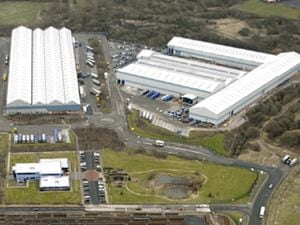Aldi looking for sites to open dozens of new stores across Black Country and Staffordshire
Supermarket giant Aldi says it wants to build nearly 20 new stores in locations across the Black Country and Staffordshire.

Among the areas it hopes to open new stores are Sedgley, Dudley, Wednesbury, Walsall and Cannock.
Bosses say they are also looking to build new stores in Wyre Forest too – as they search for locations in Kidderminster and Stourport for development.
Aldi, which is the UK's fifth largest supermarket, has been on an expansion drive in recent years as it targets having 1,200 stores open by 2025.
The company, which currently has more than 880 stores across the country, has identified locations where it is looking for freehold town centre or edge-of-centre sites suitable for development.
It says each site should be around 1.5 acres and able to accommodate a 20,000sq ft store – with around 100 parking spaces. Bosses say ideally the sites would be located on a prominent main road and with good visibility and access.
Customers
In the Black Country, Aldi is looking to build stores in Aldridge, Bilston, Bloxwich, Cradley Heath, Dudley, Sedgley, Walsall, Walsall Wood, Willenhall and Wolverhampton. Bosses are also looking for a site in Hagley, near Stourbridge.
In Staffordshire, the company is looking for sites in Cannock, Cheslyn Hay/Great Wyrley, Codsall, Lichfield, Penkridge, Tamworth and Wombourne.
Aldi is also looking to build new stores in Birmingham and Sutton Coldfield.
Ciaran Aldridge, national property director at Aldi UK, said: “Aldi is growing rapidly and we are welcoming around a million new customers into our stores every year.
“But there are also hundreds of towns across the UK where there is not an Aldi, meaning there are hundreds of thousands of people who can’t easily access the high quality, affordable food our customers love.
“We are willing to explore all opportunities, including developer-led schemes or existing retail units.”





